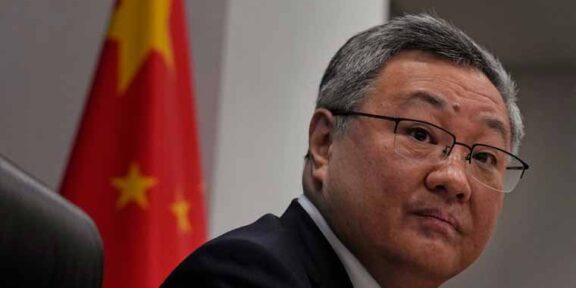Japan and the United States agreed to press China to further reduce carbon emissions, the Japanese foreign minister said Tuesday after high-level talks in Tokyo.
US climate envoy John Kerry is in Japan to drive international action ahead of November’s COP26 summit to combat global warming.
“We discussed our cooperation on efforts to reduce the emissions of major emitter countries, including China,” Foreign Minister Toshimitsu Motegi told a press briefing after meeting Kerry.
“China is the world’s largest emitter of CO2, as it is also the world’s second-largest economy… it is important that we call on them to fulfil the responsibility appropriate to their status,” he said.
Kerry will meet Prime Minister Yoshihide Suga and then travel to China to hold talks with Xie Zhenhua, the country’s special envoy for climate change affairs.
The 26th edition of the UN Climate Change Conference of the Parties, or COP26, begins on November 1 in the Scottish city of Glasgow.
It is the biggest climate summit since the 2015 Paris negotiation, where nations committed to keeping the global temperature increase to under two degrees Celsius (3.6 degrees Fahrenheit) — and ideally closer to 1.5 degrees by 2050.
Japan announced a series of ambitious new emissions targets in recent months.
Suga has set a 2050 deadline for the country to become carbon neutral — a decade ahead of China’s 2060 goal — and earlier this year he said Japan would target a 46 percent cut in emissions by 2030, more than previously pledged.
At the G7 summit in June, the group vowed to phase out fossil fuel investments, among other agreements. Climate campaign groups have said Japan’s targets and the G7 pledge do not go far enough, and lack enforcement.
“It’s wonderful to be back in Japan and we are enormously grateful for the partnership, and applaud the work on climate and G7 announcement, all of which are very strong,” Kerry told reporters in Tokyo.
Japan’s new 2030 emissions-cut target “allows us to help the fight to keep a limit of warming at 1.5 degrees, so that’s a very significant step”, he added.
The world’s third-largest economy is heavily reliant on fossil fuels, in part because many nuclear reactors remain offline after the Fukushima meltdown a decade ago.
hih-kaf/dva/mtp







